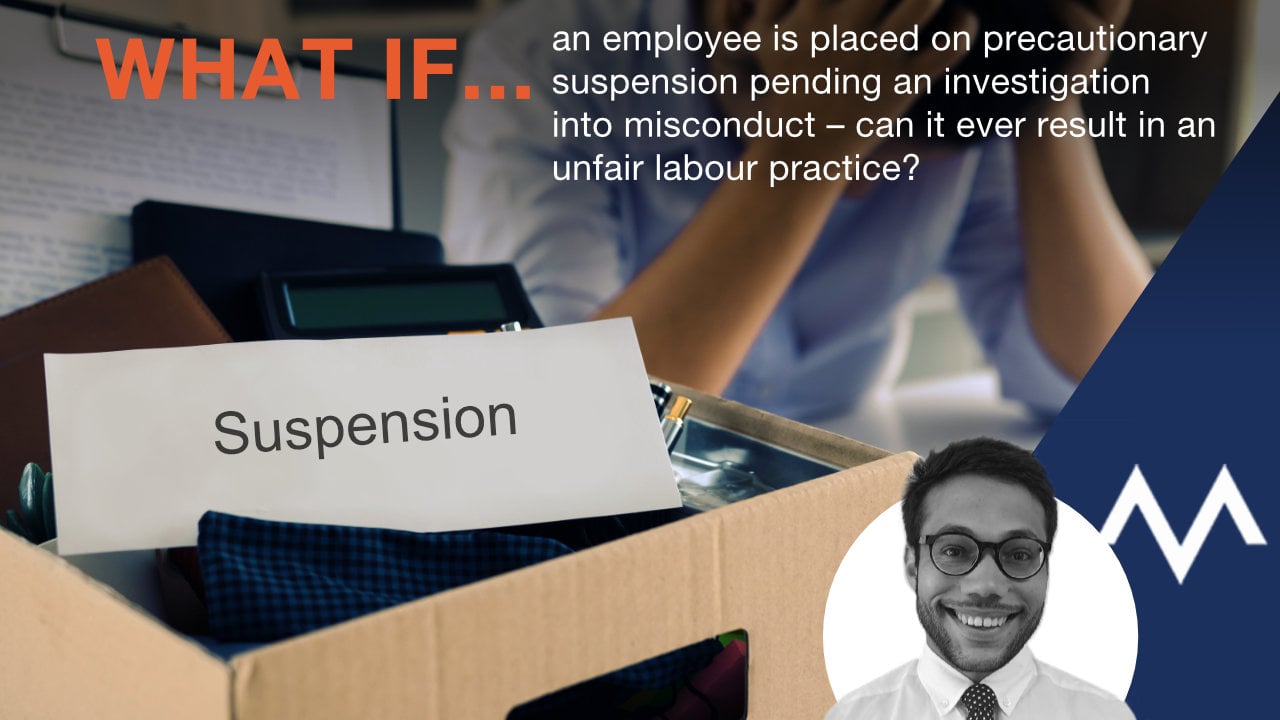Good day everyone and welcome back to another discussion in our What If series Where we will bring you insights in the format of a what if question on the ever-evolving landscape of employment law.
I'm Ross Simon from Maserumule Corporate Employment Law and in today's discussion we're unpacking “What if an employee is based on precautionary suspension pending an investigation into misconduct. Can it ever result in an unfair labour practice?”
In Bombela operating company versus the CCMA, the employee, a train driver and shop steward, was suspended on full pay after allegedly disseminating confidential company documents.
The suspension was precautionary, designed to allow for an investigation to be completed. The employee challenged this at the CCMA, arguing he wasn't given an opportunity to make representations and that the suspension was unjustified.
The CCMA agreed, awarding him one month compensation. The company, dissatisfied with the CCMA’s award, then took the matter to the Labour Court for review. The Labour Court, drawing on the Constitutional Court Alan Long case, clarified 3 critical principles.
First, a precautionary suspension is not a disciplinary process. It's a temporary measure to facilitate an investigation, not punishment. Second, there is no automatic legal requirement to allow an employee to make representations before a precautionary suspension is imposed. Third, fairness depends on whether there's a valid reason for the suspension and whether the employee suffers material prejudice.
The court found that the employee's suspension was genuinely precautionary and he suffered no material prejudice as he remained on full pay. Therefore, the suspension was both procedurally and substantively fair, and the CCMA as award was set aside.
Let's unpack the key takeaways.
For employers, precautionary suspension is a legitimate tool.
You can suspend employees on full pay during investigations without prior hearing, provided it is not punitive. However, ensure your disciplinary codes reflect current legal standards if your policy promises pre suspension representations, honour it, or amend the code and communicate clearly about the nature and purpose of any suspension for employees. Understand the type of suspension you're facing. A precautionary suspension is temporary and doesn't imply guilt. Check your company's disciplinary code for any rights to pre suspension representations. Remember, suspension on full pay significantly limits any claim of prejudice.
In conclusion, this case confirms that precautionary suspension, when used properly, is lawful and fair. The key is clarity and alignment between practice and policy.
That brings us to an end of this week's discussion. Thank you for joining us. We hope you have found it informative.
If you have any questions or comments, we'd love to hear from you. You can find us on social media or you can e-mail me directly on ross@masconsulting.co.za.
Until next time, bye bye.

